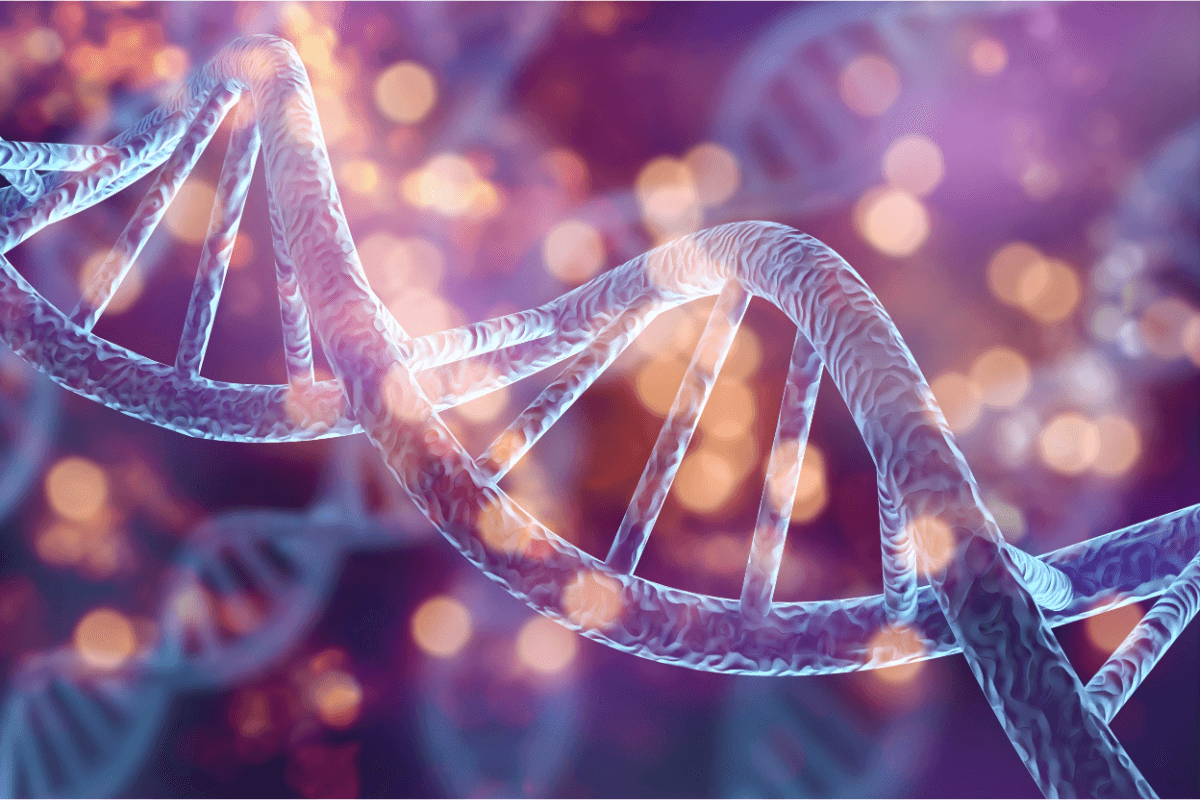Substance use disorders affected 48.7 million people in the United States in 2022.[1] Although anyone can face these conditions, some people have a higher risk than others due to the powerful connection between genetics and addiction. Learn more about how your genetic makeup can impact your risk for addiction.
Understanding Genetics and Addiction
Often, people think of substance abuse as a decision someone makes. While there is a degree of choice involved in the process, other factors are also at play. Moreover, they can make someone more likely to struggle with these issues.
Most people have an idea of how environmental factors can lead someone to develop an addiction. Those who have easy access to drugs or alcohol or those who live a high-stress life can all face greater risk. Not everyone realizes, however, that your genetic information could also affect whether you develop a substance use disorder.
Just as your family history impacts your chances of dealing with illnesses like heart disease or diabetes, it can also point toward a higher risk of experiencing mental health concerns and addictions. In fact, your genetic variation accounts for up to 60% of your risk of developing an addiction.[2]
In recent studies, scientists have identified variations of specific genes that can point to a higher risk of developing substance use issues. The strongest gene predictors are those involved in regulating dopamine signaling.
This is based on the complex interactions of multiple genes. Such interactions can spell out a higher risk for both addiction (especially alcohol use disorders) and mental and physical issues, including psychiatric disorders.[3]
However, this doesn’t mean that genetic factors will cause someone to develop an alcohol or drug addiction. What it does mean is that those with higher risk factors could more easily become dependent if they come into contact with certain substances.
Genes Involved in Addiction
There isn’t one gene involved with substance use disorders. Individual substances can affect different areas of the brain. It follows that the genes that might put you at a higher risk of developing an alcohol addiction might not be the same ones that put you at risk of a cocaine addiction.
Two of the genes that appear to impact alcohol dependency are alcohol dehydrogenase 1B (ADH1B) and aldehyde dehydrogenase 2 (ALDH2), which are involved in metabolizing alcohol. A variation in these genes could lead someone to either experience uncomfortable symptoms while drinking even small amounts of alcohol or to have a propensity toward drinking more.[4]
Genes that impact stress resilience, including MAOA, SLC6A4, and COMT, can also impact whether someone develops an addiction. Variations in these genes could make you less able to manage stress levels effectively, and that could lead to self-medicating.[5]
One of the genes associated with cocaine addiction is HIST1H2BD. It’s involved in the production of proteins for cells’ nuclei.[6] It’s still not fully understood why a variation of this gene can make you more likely to develop a cocaine addiction.
Managing Addiction: Treatment Paths to Consider
Regardless of what genetic and environmental factors lead someone to develop a substance use disorder, treatment is always necessary to achieve long-term sobriety. One reason for this is that the process of stopping the substance can be dangerous if you’re not carefully monitored.
Long-term use of alcohol or drugs causes structural changes to your brain, affecting neurotransmitters and causing chemical imbalances. The moment you stop using the substance, your body has a tough time adjusting. This results in severe withdrawal symptoms.
The actual symptoms you experience depend on the exact substance you’ve been using as well as on how long you’ve used it. To avoid some of the most dangerous effects of the process, you have to rely on detox programs. They offer the chance to receive medical assistance and supervision.
Once you complete detox, you have a variety of treatment options to choose from. These include inpatient and outpatient options. The severity of the addiction, as well as your family and work responsibilities, will impact which program is best for you.
Trust Ocean Hills Recovery With Your Journey to Sobriety
Genetics and addiction are closely linked. The risk of alcohol or drug use disorders rises if you have a family history of addiction or certain gene variations. If you’re struggling with a substance use disorder, we offer several programs at Ocean Hills Recovery.
Our approach combines holistic and evidence-based treatment modalities. Call our experts to learn more about how we can help.
Sources:
[1] https://www.samhsa.gov/newsroom/press-announcements/20231113/hhs-samhsa-release-2022-nsduh-data
[2] https://learn.genetics.utah.edu/content/addiction/genes/
[3] https://nida.nih.gov/news-events/news-releases/2023/03/new-nih-study-reveals-shared-genetic-markers-underlying-substance-use-disorders
[4] https://www.ncbi.nlm.nih.gov/pmc/articles/PMC6286250/
[5] https://www.ncbi.nlm.nih.gov/pmc/articles/PMC3506170/
[6] https://www.nature.com/articles/s41380-021-01256-1













